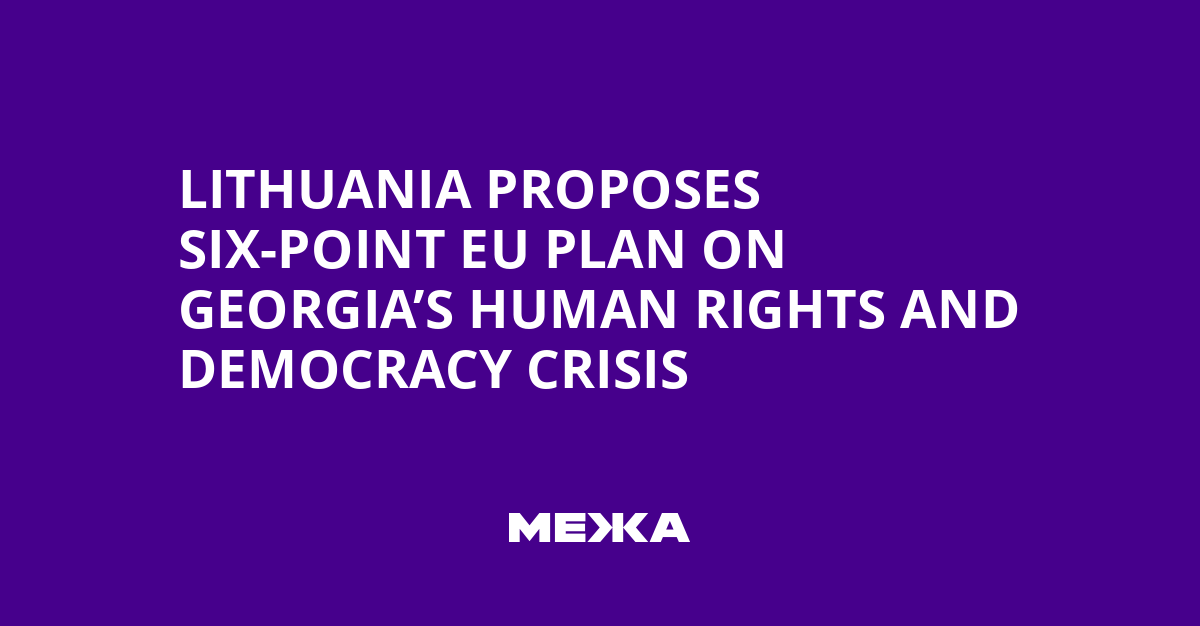Lithuania has presented the European Union with a six-point plan regarding further actions on Georgia, in light of human rights violations and democratic norms breaches in the country. This was announced by Lithuania’s Foreign Minister, Kaustutis Budris, in a statement released by the Lithuanian broadcaster LRT.
Before the EU Foreign Affairs Council meeting held on June 23 in Brussels, Budris emphasized the importance of adopting this initiative, as he believes the humanitarian situation in Georgia continues to deteriorate.
“We have presented our proposals, but first I need to discuss them with my colleagues. The plan includes suggestions ranging from additional support for civil society to a review of the visa regime.”
– Kaustutis Budris, Lithuanian Foreign Minister
On November 28, 2024, Georgian Prime Minister Irakli Kobakhidze announced the suspension of negotiations for EU membership until 2028. This came amid mass protests that erupted following the October parliamentary elections, in which the ruling party, Georgian Dream, officially claimed victory. After this announcement, protests intensified and continue to this day.
The presidential election held on December 14, 2024, was not recognized by the incumbent president, Salome Zurabishvili. The electoral college, dominated by Georgian Dream, elected Mikheil Kavelashvili as president with 224 votes. The opposition refused to acknowledge the legitimacy of both the parliamentary and presidential elections.
Prime Minister Kobakhidze stated that Zurabishvili should leave office following Kavelashvili’s inauguration on December 29, in accordance with the Constitution. However, Zurabishvili herself refused to step down, calling the parliament illegitimate and Kavelashvili’s election a “mockery of democracy.”
On December 29, Kavelashvili took the presidential oath, and Zurabishvili voluntarily vacated the presidential palace.
Earlier, the European Council announced that Georgia’s EU integration process has effectively been halted due to actions by the ruling Georgian Dream party, particularly the adoption of laws on “foreign agents” and restrictions on LGBT rights. Additionally, the EU did not recognize the results of the parliamentary elections held on October 26, 2024.
